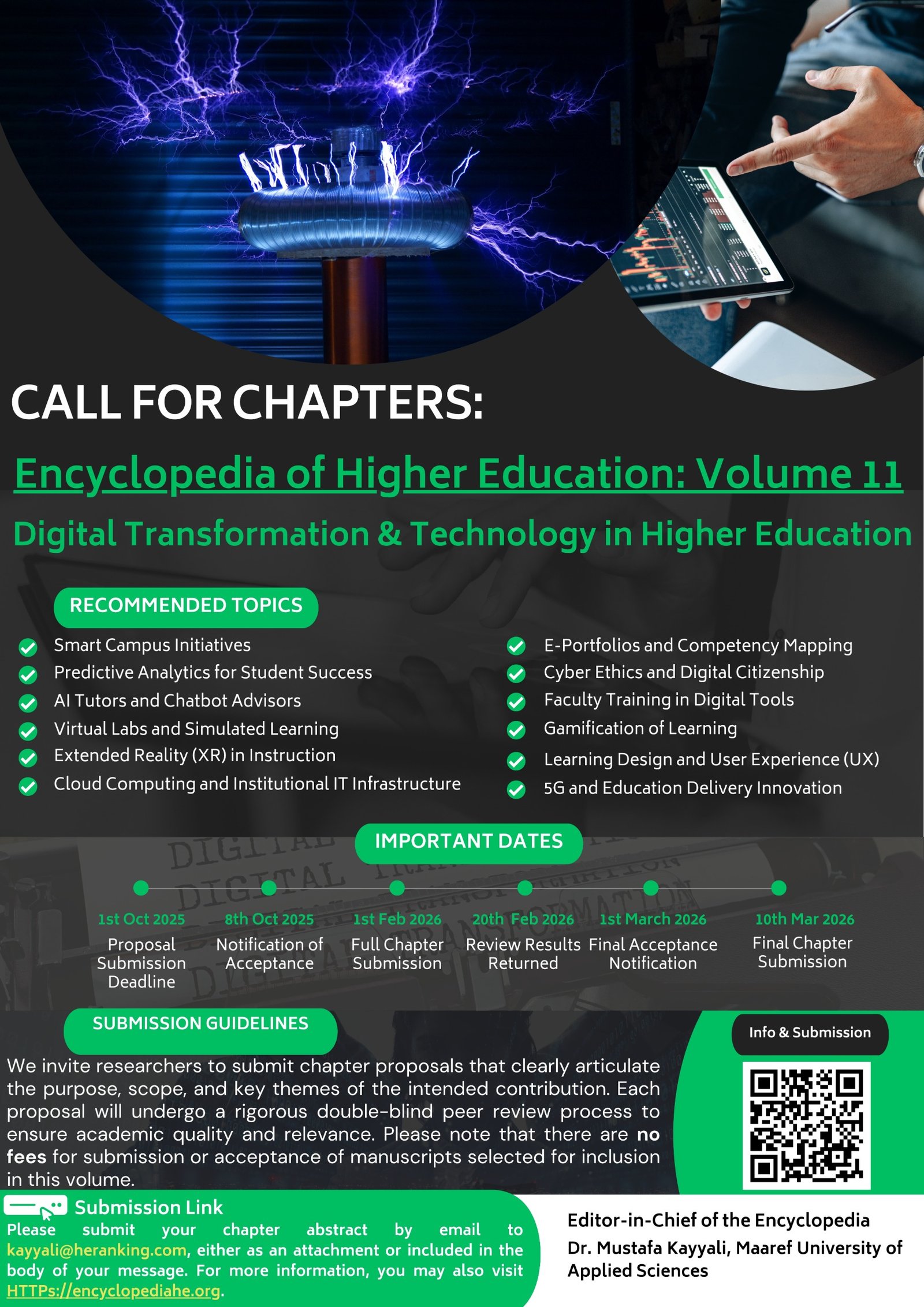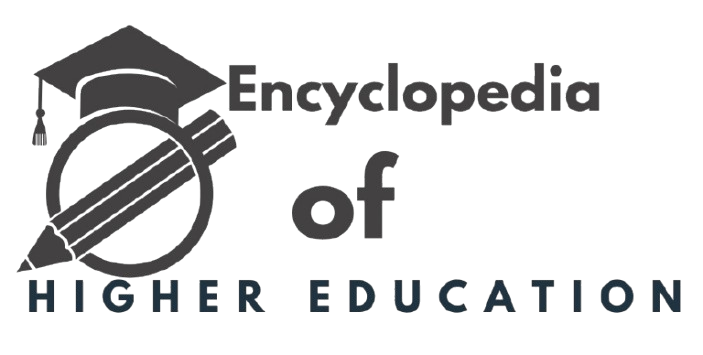Volume 11. Digital Transformation and Technology in Higher Education
Overview
This volume investigates the accelerating digital transformation of higher education, examining how technology is reshaping pedagogy, administration, research, student services, and institutional strategy. It explores the integration of advanced technologies such as artificial intelligence, blockchain, extended reality (XR), cloud computing, and data analytics into every layer of the academic enterprise. From smart campus development and AI tutors to adaptive learning systems and robotics in campus operations, the volume considers both the promises and pitfalls of digital disruption. It pays special attention to user experience design, digital equity, and the ethical implications of automation, surveillance, and algorithmic decision-making. Furthermore, it examines how universities are navigating complex IT governance, cybersecurity risks, and infrastructural challenges, particularly in under-resourced or marginalized contexts.
Importance and Impact
As digital transformation becomes a defining force in global higher education, institutions must go beyond adopting technologies—they must reimagine their missions, models, and mindsets. This volume underscores how thoughtful digital integration can enhance student engagement, streamline operations, and unlock new frontiers in research collaboration and personalized learning. Yet it also highlights the dangers of digital divides, loss of academic agency to algorithms, and ethical dilemmas in data use. For leaders, educators, and policymakers, understanding these dualities is essential. The volume provides critical insights into building resilient, inclusive, and forward-thinking digital ecosystems—ones that empower learners, protect rights, and ensure that technology serves as a tool for equity, not exclusion.
Submission Guidelines
Word Count: 5,000 to 6,000 words
Each chapter should be between 5,000 and 6,000 words, including references. This length allows contributors to develop their argument with sufficient depth while remaining accessible to a global readership.
Language: English
All submissions must be written in clear, academic English. Contributors are encouraged to use inclusive language and ensure clarity for an international audience.
Citation Style: APA (7th edition preferred)
Please follow APA Style, 7th edition, for all in-text citations, reference lists, headings, and formatting. Consistency in referencing ensures academic integrity and ease of cross-referencing.
References: At least 80% published after 2021
To ensure the relevance and timeliness of each chapter, at least 80% of cited sources should be published from 2021 onward. This helps maintain the encyclopedia’s credibility and reflects current research and policy discussions.
File Format: Microsoft Word (.docx)
Submissions must be uploaded in Microsoft Word format (.docx only). This format allows for easier editing, formatting, and review throughout the publication process.
Interested in Contributing?
Researchers and authors who wish to participate in the Encyclopedia of Higher Education project are invited to send their abstract, chapter idea, or full submission directly to: kayyali@heranking.com
Alternatively, you may fill out the following form to express your interest and submit your proposal.

Recommended Topics for Contribution
Authors are welcome to explore any of the following themes—or propose their own original focus aligned with the volume’s scope:
1- Smart Campus Initiatives
2- Predictive Analytics for Student Success
3- AI Tutors and Chatbot Advisors
4- Virtual Labs and Simulated Learning
5- Extended Reality (XR) in Instruction
6- Cloud Computing and Institutional IT Infrastructure
7- E-Portfolios and Competency Mapping
8- Learning Management Systems (LMS) Innovations
9- Cyber Ethics and Digital Citizenship
10- Tech-Enhanced Academic Integrity Monitoring
11- Faculty Training in Digital Tools
12- Gamification of Learning
13- Learning Design and User Experience (UX)
14- 5G and Education Delivery Innovation
15- Data-Driven Institutional Decision-Making
16- Digital Twins in Higher Education
17- Institutional Approaches to AI Integration
18- E-Governance in University Administration
19- Data Privacy and Student Rights
20- Cloud-Based Collaboration in Research and Teaching
21- University IT Governance Models
22- Blockchain for Research Verification
23- Wearables and Biometric Feedback in Learning
24- Smart Contracts in Academic Administration
25- Automation of Administrative Services
26- Robotics in Campus Services
27- Learning Analytics for Equity and Inclusion
28- Adaptive Testing Platforms
29- E-Libraries and Digital Archives
30- Barriers to Digital Transformation in the Global South
